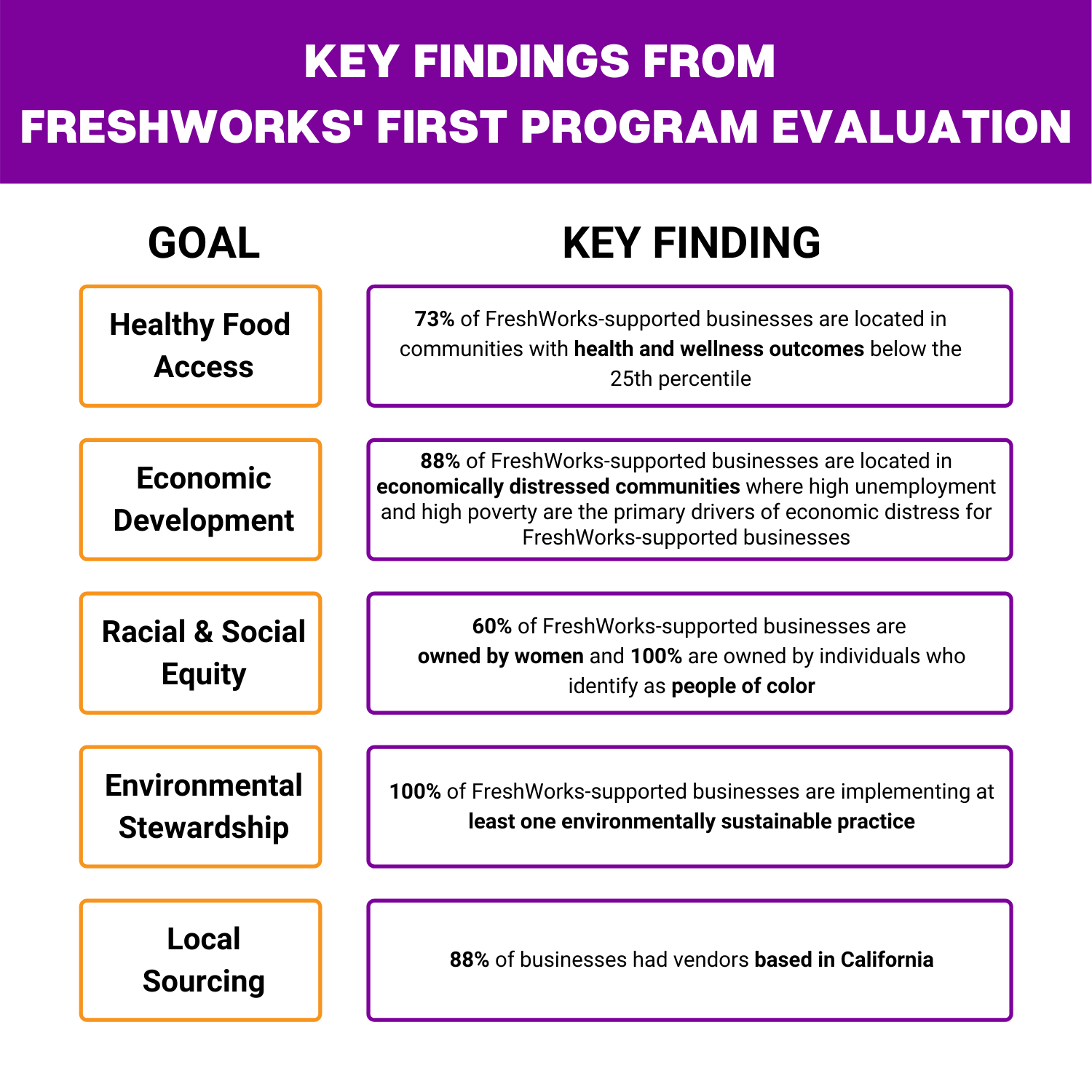California FreshWorks is comprised of a statewide network of CDFI lenders that provide financing to food enterprises that invest in an equitable food system and increase access to affordable, healthy, culturally-appropriate food in underserved communities. We approach food access not only as a health issue, but also a community development and equity issue. Therefore, along with increasing access to healthy foods FreshWorks works to cultivate economic power and leadership; and focuses on racial and social equity, environmental stewardship, and local sourcing.
To develop FreshWorks’ current strategies we performed an extensive literature review that focused on inequities in the food system and listening sessions within key communities. We learned that the people most impacted by issues of food insecurity, obesity, and lack of access to nutritious food are people of color, women, children, low-income individuals, and food system workers.
Ownership across the food system has seen decades of corporate consolidation, resulting in negative social and economic impacts on food, trade, land use, labor, and other sectors. Consequently, from seeds to land ownership to retail distribution, profit, not nourishing communities, is the key driver of our conventional food system.
The U.S. food system provides one out of five private-sector jobs, and is the number one private sector employer in California. The majority of small businesses in the state are founded and run by people of color; however, each year more than 50% of entrepreneurs of color are denied access to capital.
Unsurprisingly, the ownership of land and capital in the food system is primarily white and male. In part, the practices of the United States Department of Agriculture (USDA) bolsters inequities among farmers. These practices have historically discriminated against agricultural workers, ranchers of color, and women, through the denial of land ownership, loans, and adequate support services.
In light of these findings, we determined that FreshWorks must also cultivate economic power and leadership alongside increasing access to healthy food. In order to truly address the structural failures that perpetuate and exacerbate lack of access to healthy, culturally relevant, environmentally sustainable, and affordable food, we redesigned our program prioritizing the following goals:
- HEALTHY FOOD ACCESS
Increase access to healthy food for residents of low-income, low-access communities. - ECONOMIC DEVELOPMENT
Spur job creation and inclusive economic development. - RACIAL & SOCIAL EQUITY
Ensure equitable access to food, ownership, and jobs. - ENVIRONMENTAL STEWARDSHIP
Encourage sustainable environmental practices. - LOCAL SOURCING
Build a sustainable California food system that increases availability of locally grown or produced foods.
California has a range of businesses in the food and farming sectors, and these goals inform how we operate and what businesses we work with. It was also important to us that we look to geographic regions that have historically received less emphasis and resources, local sourcing, and environmental stewardship. Additionally, we developed two new financial products, Technical Assistance grants and Credit Enhancements, directly confronting and removing barriers for small businesses to access capital.
Disparities in access to fresh food are influenced by geographic, economic, and social factors within the policies and practices of a community’s food system. Therefore, the solutions we invest in must take a systemic approach and focus on building structural equity.
